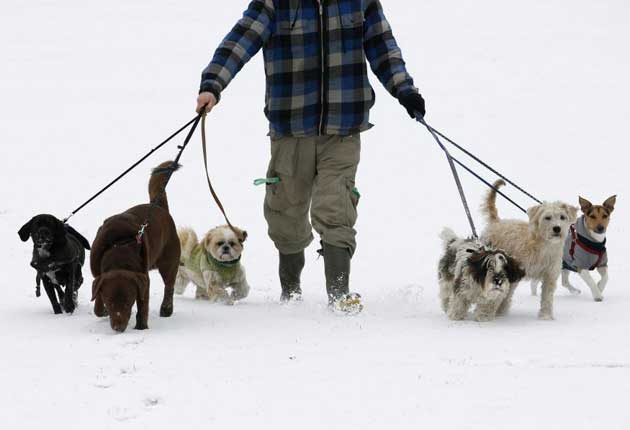Cold snap bites into Britain's gas reserves

Your support helps us to tell the story
From reproductive rights to climate change to Big Tech, The Independent is on the ground when the story is developing. Whether it's investigating the financials of Elon Musk's pro-Trump PAC or producing our latest documentary, 'The A Word', which shines a light on the American women fighting for reproductive rights, we know how important it is to parse out the facts from the messaging.
At such a critical moment in US history, we need reporters on the ground. Your donation allows us to keep sending journalists to speak to both sides of the story.
The Independent is trusted by Americans across the entire political spectrum. And unlike many other quality news outlets, we choose not to lock Americans out of our reporting and analysis with paywalls. We believe quality journalism should be available to everyone, paid for by those who can afford it.
Your support makes all the difference.People turning up the heating to cope with freezing temperatures sent the gas market into a spin yesterday.
Trading prices for gas spiked by 7 per cent to 63.5p a therm and the amount in storage tumbled to a five-year low, prompting speculation from traders that Britain might have problems if the cold snap was prolonged.
When the cold snap began to bite a fortnight ago wholesale traders started withdrawing gas from Britain's only long-range storage facility, Rough, and supplies have sunk to 17 per cent below levels this time last year.
The Met Office forecasts that bitterly cold weather will continue in the north this month, keeping up pressure on storage to top-up supplies coming in from the North Sea and liquefied natural gas terminals. Jason Durden, energy trader at Energy Quote JHA, said: "If you do the numbers, storage will be empty some time in early February, if it stays this cold."
Britain's historically abundant North Sea supplies have dwindled to about 40 per cent of the UK's use, leaving the country more dependent on pipeline imports from Norway, the Netherlands and, to a lesser extent, Russia. Liquefied natural gas from Qatar and Algeria is shipped to ports.
Yesterday, demand reached 454 million cubic metres, 30 per cent higher than 1 December last year, while storage fell to 3.5 billion cubic metres, just over a week's supply.
Asked if the UK could run out of gas, Edward Cox, a gas analyst at ICIS Heren, said: "I don't see any prospect of that because we have so many various sources of supply."
Join our commenting forum
Join thought-provoking conversations, follow other Independent readers and see their replies
Comments